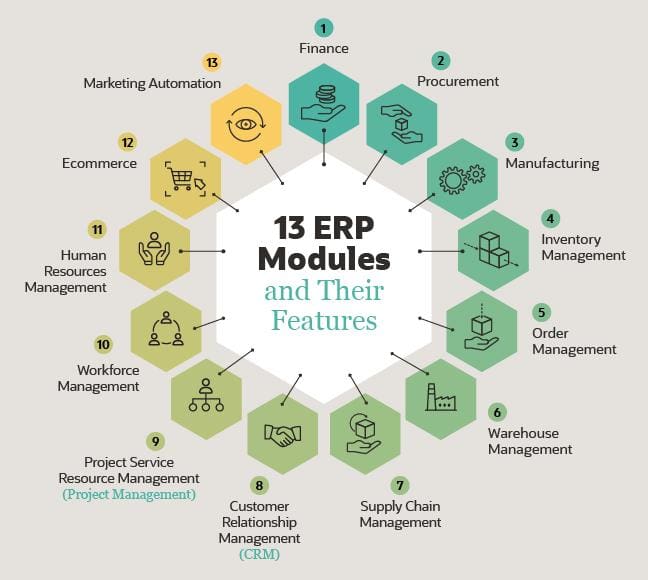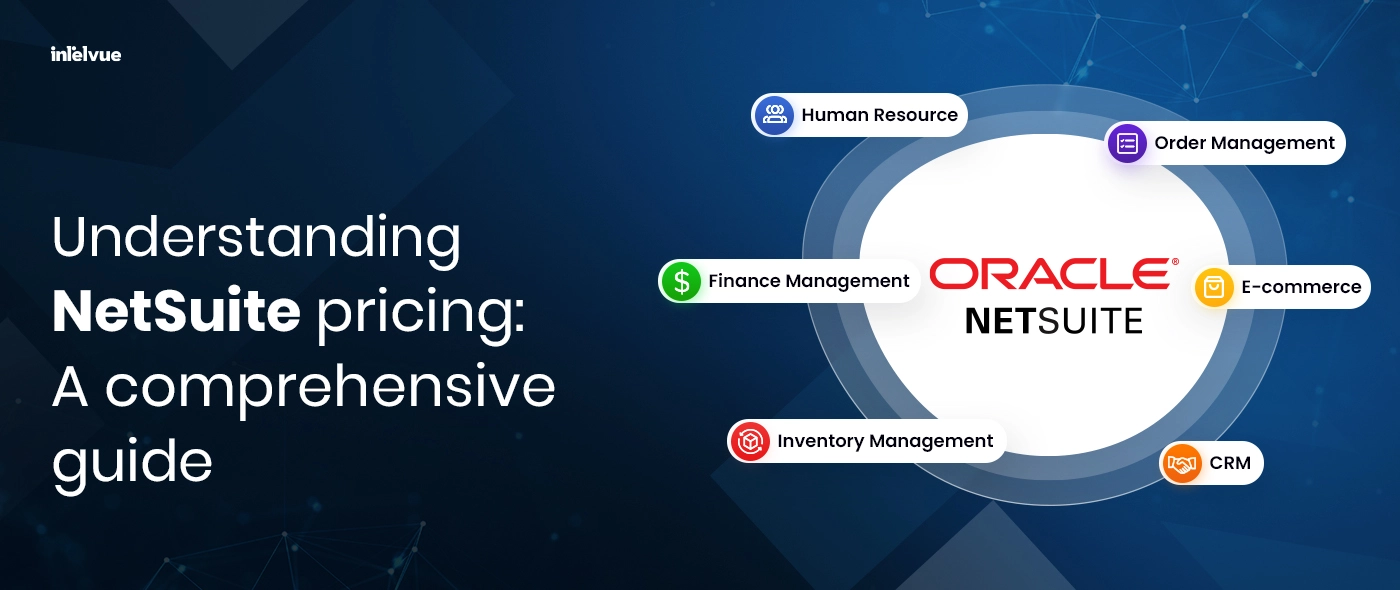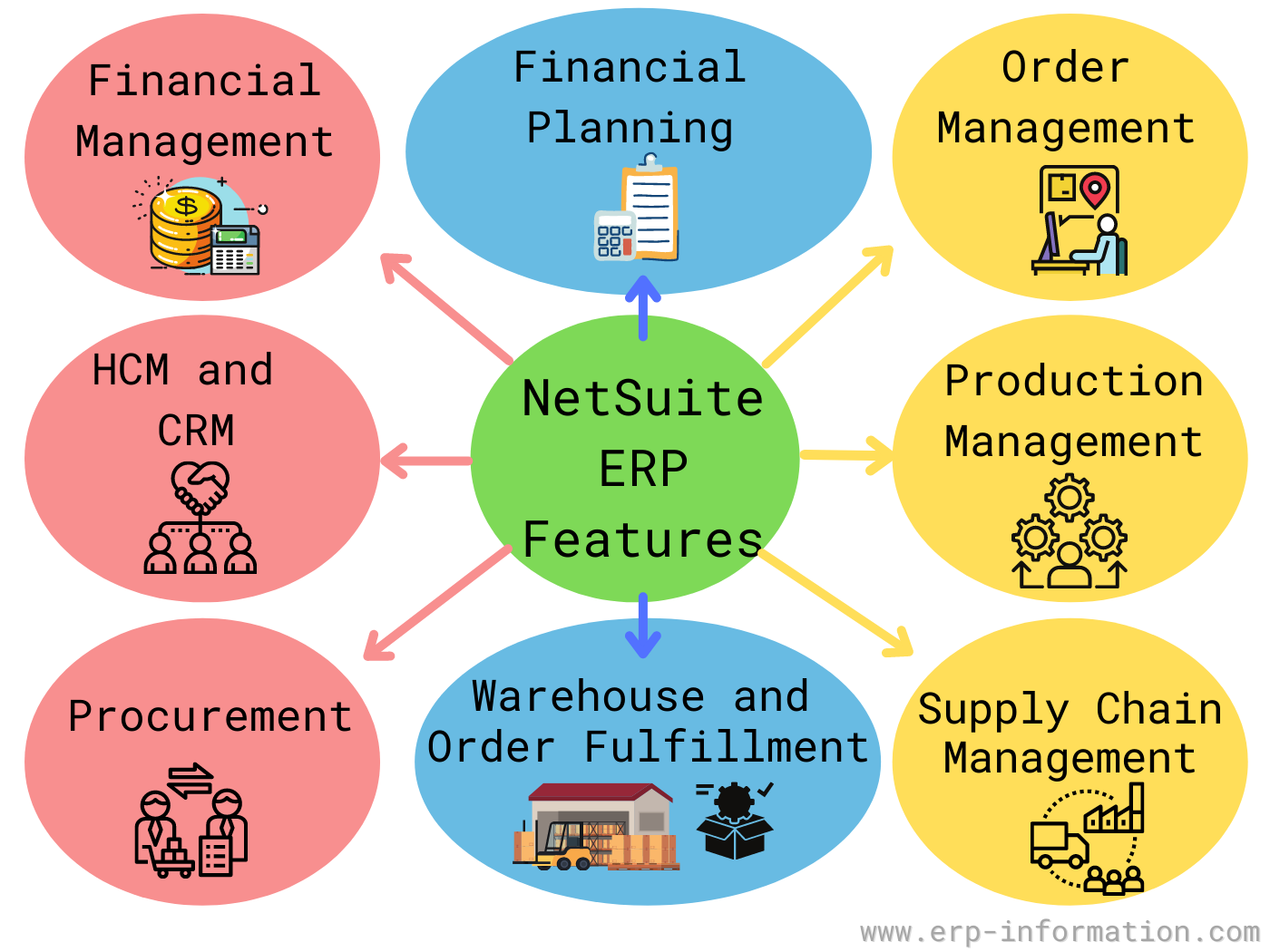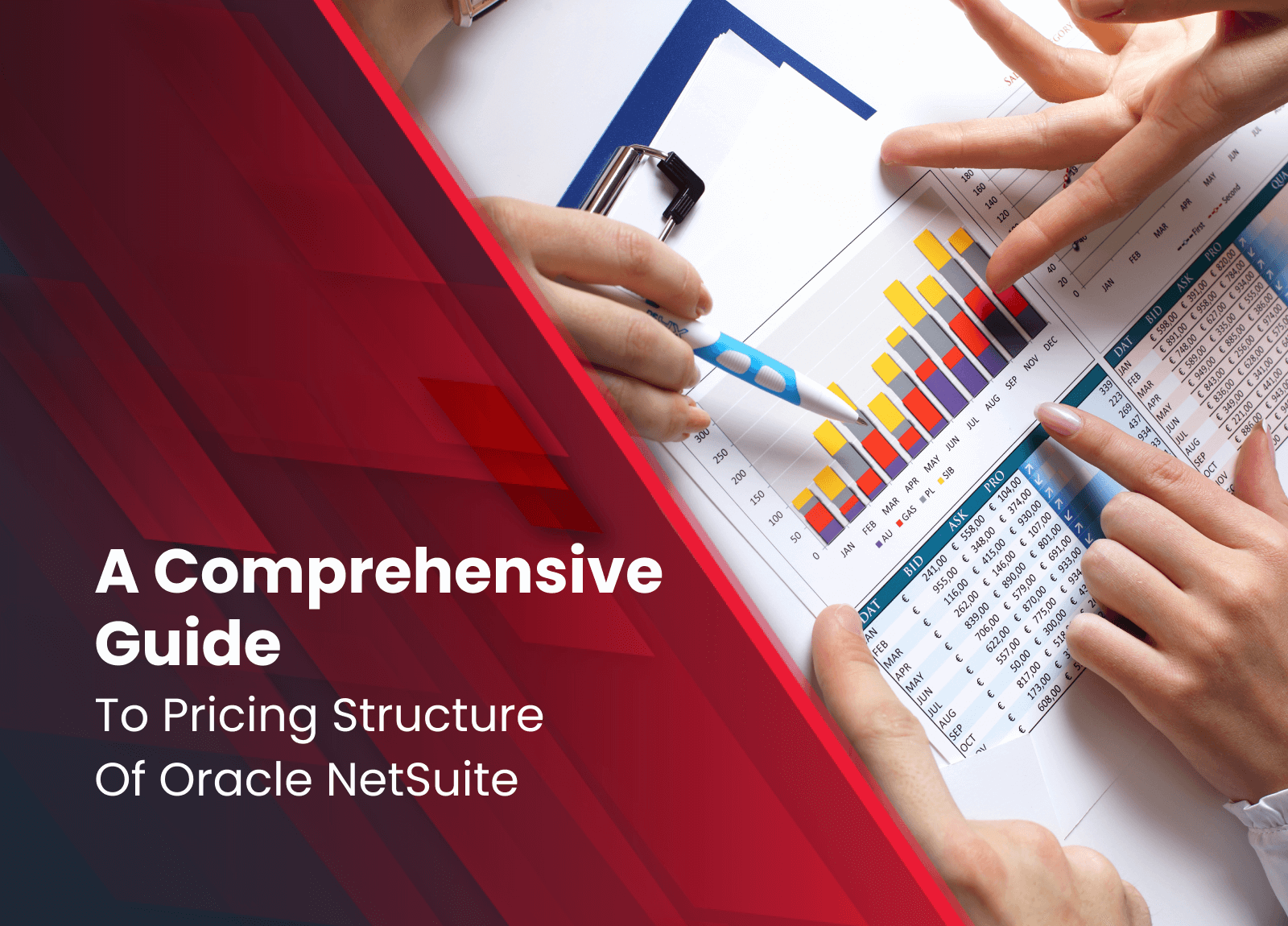Demystifying NetSuite ERP Pricing: A Comprehensive Guide for Businesses of All Sizes
 .
.
Introduction:
In today’s dynamic business landscape, navigating the complex world of enterprise resource planning (ERP) systems can feel like traversing a labyrinth. With numerous options available, choosing the right ERP solution that aligns with your specific needs and budget can be a daunting task. Among the leading contenders in the ERP market stands NetSuite, a cloud-based ERP system renowned for its comprehensive suite of features and scalability. However, the question that often arises is: how much does NetSuite actually cost?
This comprehensive guide aims to demystify NetSuite ERP pricing, providing you with a clear understanding of the factors that influence cost, the various pricing models available, and the potential benefits and drawbacks associated with each. Whether you’re a small startup just starting your journey or a large enterprise seeking to streamline operations, this article will equip you with the knowledge you need to make an informed decision about NetSuite.
Navigating the Labyrinth of NetSuite Pricing:
 .
.
NetSuite’s pricing structure is designed to cater to the diverse needs of businesses across industries and sizes. However, the complexity of its pricing model can sometimes leave potential customers feeling lost in a labyrinth of options. Understanding the key components of NetSuite’s pricing strategy is crucial for making a sound financial decision.
Subscription-Based Model:
NetSuite operates on a subscription-based model, meaning you pay a recurring monthly or annual fee for access to its software and services. This model offers flexibility and scalability, allowing businesses to adjust their subscription based on their evolving needs and resource constraints.
Factors Influencing NetSuite Pricing:
Several factors influence the cost of a NetSuite subscription, including:
-
Number of Users: The number of users accessing the system directly impacts the subscription cost. As the number of users increases, so does the overall price.
-
Modules and Features: NetSuite offers a wide range of modules and features catering to various business functions, such as finance, inventory management, CRM, and e-commerce. The specific modules and features you choose will determine the final cost.
 .
.
-
Industry-Specific Solutions: NetSuite provides tailored solutions for specific industries, such as retail, manufacturing, and services. These industry-specific solutions often come with additional modules and features, impacting the overall price.
 .
.
Data Volume and Complexity: The volume and complexity of your data can influence the cost. Businesses with large amounts of data or complex workflows may require more robust infrastructure and support, leading to higher pricing.
-
Customization and Integration: Customization and integration with third-party applications can add to the cost. NetSuite offers a range of customization options and integration capabilities, allowing businesses to tailor the system to their specific requirements.
 .
.
 .
.
Pricing Models:
NetSuite offers various pricing models to cater to different business needs and budgets:
-
Per-User Pricing: This model charges a fixed monthly or annual fee per user. It’s a straightforward pricing model suitable for businesses with a predictable number of users.
-
Value-Based Pricing: This model considers the value delivered by NetSuite to your business. It takes into account factors such as revenue, number of transactions, and other relevant metrics. This model can be more complex but offers greater flexibility and potential cost savings.
-
Bundle Pricing: NetSuite offers bundled packages that include multiple modules and features at a discounted price. This can be a cost-effective option for businesses with specific needs across different departments.
-
Pay-as-You-Go Pricing: This model allows businesses to pay only for the resources they use. It’s ideal for businesses with fluctuating workloads or seasonal peaks.
Advantages of NetSuite ERP Pricing:
-
Scalability and Flexibility: NetSuite’s subscription-based model offers scalability and flexibility, allowing businesses to adjust their subscription as their needs evolve.
-
Predictable Costs: The subscription model provides predictable monthly or annual costs, simplifying budgeting and financial planning.
-
Value-Based Pricing: NetSuite’s value-based pricing model can offer cost savings for businesses that leverage the system effectively.
-
Bundled Packages: Bundled packages provide cost-effective solutions for businesses with specific needs across multiple departments.
-
Pay-as-You-Go Option: The pay-as-you-go option offers flexibility and cost savings for businesses with fluctuating workloads.
Disadvantages of NetSuite ERP Pricing:
-
High Initial Cost: NetSuite’s subscription fees can be relatively high, especially for businesses with a large number of users or complex requirements.
-
Hidden Costs: Additional costs for customization, integration, and support can add up, making it difficult to estimate the total cost upfront.
-
Long-Term Commitment: Subscription-based models often require long-term commitments, which can be a challenge for businesses with fluctuating financial situations.
-
Limited Customization Options: While NetSuite offers some customization options, they may not be as extensive as some other ERP solutions.
-
Dependence on Cloud Infrastructure: NetSuite’s reliance on cloud infrastructure can be a disadvantage for businesses with strict data security requirements or limited internet connectivity.
NetSuite ERP Pricing: A Comprehensive Summary:
NetSuite’s pricing structure is designed to cater to the diverse needs of businesses across industries and sizes. However, the complexity of its pricing model can sometimes leave potential customers feeling lost in a labyrinth of options. Understanding the key components of NetSuite’s pricing strategy is crucial for making a sound financial decision.
-
Subscription-Based Model: NetSuite operates on a subscription-based model, meaning you pay a recurring monthly or annual fee for access to its software and services. This model offers flexibility and scalability, allowing businesses to adjust their subscription based on their evolving needs and resource constraints.
-
Factors Influencing NetSuite Pricing: Several factors influence the cost of a NetSuite subscription, including the number of users, modules and features, industry-specific solutions, data volume and complexity, and customization and integration.
-
Pricing Models: NetSuite offers various pricing models to cater to different business needs and budgets, including per-user pricing, value-based pricing, bundle pricing, and pay-as-you-go pricing.
-
Advantages of NetSuite ERP Pricing: NetSuite’s subscription-based model offers scalability and flexibility, predictable costs, value-based pricing, bundled packages, and a pay-as-you-go option.
-
Disadvantages of NetSuite ERP Pricing: NetSuite’s subscription fees can be relatively high, additional costs for customization, integration, and support can add up, subscription-based models often require long-term commitments, NetSuite’s customization options may not be as extensive as some other ERP solutions, and its reliance on cloud infrastructure can be a disadvantage for businesses with strict data security requirements or limited internet connectivity.
Frequently Asked Questions (FAQs):
1. What is the starting price for a NetSuite subscription?
The starting price for a NetSuite subscription can vary depending on the specific modules and features you choose. However, you can expect to pay around $1,000 per month for a basic subscription with a limited number of users and features.
2. How does NetSuite pricing compare to other ERP solutions?
NetSuite’s pricing is generally considered to be in the mid-range compared to other ERP solutions. Some competitors may offer more affordable options, while others may have higher pricing depending on their features and capabilities.
3. What are the hidden costs associated with NetSuite?
Hidden costs associated with NetSuite can include customization, integration, and support fees. It’s important to factor these costs into your overall budget when evaluating NetSuite.
4. Can I negotiate NetSuite pricing?
Yes, you can negotiate NetSuite pricing, especially if you’re a large enterprise or have specific requirements. It’s always worth negotiating to secure the best possible price.
5. Does NetSuite offer any discounts?
NetSuite offers discounts for non-profit organizations, educational institutions, and government agencies. It’s worth checking if you qualify for any discounts.
6. What is the typical contract term for a NetSuite subscription?
The typical contract term for a NetSuite subscription is one year. However, you may be able to negotiate shorter or longer contract terms depending on your needs.
7. What are the payment options for NetSuite?
NetSuite accepts various payment options, including credit card, bank transfer, and ACH payments.
8. Can I cancel my NetSuite subscription at any time?
You can typically cancel your NetSuite subscription at any time, but you may be subject to cancellation fees depending on your contract terms.
9. Does NetSuite offer a free trial?
Yes, NetSuite offers a free trial of its software. This allows you to test the system and see if it meets your needs before committing to a subscription.
10. What is the best way to get a quote for NetSuite?
The best way to get a quote for NetSuite is to contact a NetSuite sales representative. They can provide you with a personalized quote based on your specific requirements.
11. What are the benefits of using NetSuite?
NetSuite offers a wide range of benefits, including improved efficiency, reduced costs, enhanced visibility, and increased customer satisfaction.
12. Who should use NetSuite?
NetSuite is suitable for businesses of all sizes across various industries. It’s particularly well-suited for businesses that require a comprehensive ERP solution with a wide range of features and capabilities.
13. What are the alternatives to NetSuite?
Some popular alternatives to NetSuite include SAP, Oracle, Microsoft Dynamics 365, and Salesforce.
Conclusion:
Choosing the right ERP system is a critical decision for any business. NetSuite offers a comprehensive suite of features and capabilities, but its pricing structure can be complex. By understanding the factors that influence cost, the various pricing models available, and the potential benefits and drawbacks associated with each, you can make an informed decision about whether NetSuite is the right fit for your business.
Remember, the best ERP solution is the one that meets your specific needs and budget. It’s essential to carefully evaluate your requirements, research different options, and compare pricing models before making a final decision. Don’t hesitate to contact a NetSuite sales representative for a personalized quote and to discuss your specific needs.
Disclaimer:
This article provides general information about NetSuite ERP pricing and is not intended to be a substitute for professional financial advice. The information provided is subject to change and may not be applicable to all situations. It’s always advisable to consult with a qualified professional before making any financial decisions.
 .
.
